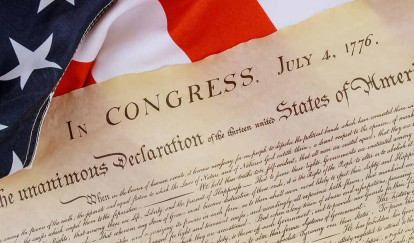
Share This Article
What do civil rights lawyers do? Civil rights lawyers assist people who have faced discrimination or mistreatment by the government. Through a civil rights claim, victims can pursue financial compensation and injunctive relief to prevent further rights violations.
Key Areas of Focus for Civil Rights Lawyers
Civil rights are the rights you have as a person, a state resident, and a federal citizen. These rights take two forms. You have the right to be treated fairly and without bias based on your race, nationality, sex, and disability. Thus, discrimination in housing or employment would qualify as a civil rights violation.
You also have the right to treatment by the government consistent with the Constitution. If the government discriminates against you or deprives you of your constitutional rights, you may have a civil rights case.
Civil rights attorneys may handle cases involving a variety of areas.
Employment Discrimination
A core civil right is the right to equal employment opportunities. Under both state and federal civil rights laws, employers cannot treat employees differently based on their:
- Race
- Religion
- Color
- National origin
- Alienage
- Sex, including pregnancy or sexual preference
- Age
- Disability
Employers cannot use these classifications to make decisions about any conditions, opportunities, or benefits of employment, including:
- Hiring
- Pay, including bonuses
- Benefits
- Training
- Promotion
- Firing
A second form of employment discrimination happens when an employer creates or allows its workers to create a hostile work environment based on any of those classifications. A hostile work environment involves severe and pervasive harassment or bullying that affects the worker’s ability to do their job.
What do civil rights lawyers do to prove employment discrimination based on a hostile work environment? They must show that you believed enduring negative treatment was a condition of your employment.
Public Accommodations Discrimination
Another civil right critical to creating a fairer society is equal treatment in public accommodations. A little over 60 years ago, businesses routinely denied service based on race. State and federal civil rights laws now prohibit this kind of discriminatory treatment in:
- Restaurants
- Bars
- Hotels
- Theaters
- Stadiums and arenas
- Concert halls
A business cannot use discriminatory classifications to:
- Refuse service
- Provide different accommodations or quality of service
- Sell different goods
- Charge a different price
- Deny access to facilities like pools
Public accommodations discrimination is not as broad as employment discrimination. It does not cover classes like sex, sexual preference, or age.
Housing Discrimination
Landlords cannot refuse to rent to you based on race, sex, religion, or disability. Similarly, property owners cannot refuse to sell to you based on these classifications.
Police Misconduct
Some civil rights apply regardless of the reason for the interaction. For example, police officers and agencies cannot violate the constitutional rights of any person by acting without legal justification to:
- Detain
- Search
- Arrest
- Use excessive force
- Deny or delay medical treatment
- Harass
Everyone has a right to be free from police brutality and false arrest. Your civil rights lawyer does not need to prove your treatment happened because of your race, sex, or other characteristics.
Legal Remedies: Understanding the Tools in a Civil Rights Lawyer’s Arsenal
Civil rights laws define the remedies available for different types of violations. These remedies typically fall into four categories.
Enforcement Action
You can report your treatment to the U.S. Department of Justice, the Equal Employment Opportunity Commission (EEOC), or other agencies responsible for enforcing civil rights. The enforcement action might result in fines and orders to end the discriminatory practices.
Compensatory Damages
You can hire a civil rights attorney to file a lawsuit to pursue compensatory damages. These damages put you into the financial position you would have had if the discrimination had not occurred.
Punitive Damages
A civil rights lawsuit can also seek punitive damages to punish the other party for unlawful conduct. Punitive damages are rare, but a court might award them when a business engages in a persistent and long-standing pattern of discrimination.
Injunctive Relief
An injunction is a court order prohibiting or requiring action by a party. For example, suppose that you win a civil rights case against your homeowners association (HOA). You might request an injunction requiring the HOA to stop its discriminatory practices.
How to Choose the Right Civil Rights Lawyer for Your Case
You want an experienced civil rights attorney to handle your case. Civil rights cases often involve special procedures not used in other cases. For example, you must file an EEOC charge before filing most types of employment discrimination lawsuits.
Also, civil rights cases rest on mountains of case law that define discrimination. You need a lawyer who knows which arguments work and which do not.
FAQs
Here are some answers to questions people ask about civil rights cases.
What Is National Origin Discrimination?
National origin discrimination is an important tool for remedying civil rights violations. This type of discrimination happens when someone is treated differently based on their:
- Ancestors’ country of origin
- Language
- Ethnicity
For example, discriminating against Korean customers might not fall under racial discrimination if the business accepts Chinese customers. But it could fall under national origin discrimination.
What Do Civil Rights Lawyers Do About Sexual Preference Discrimination?
Civil rights laws treat sexual preference inconsistently. For some purposes, like employment and education, laws prohibit LGBTQ discrimination. But in other cases, like public accommodations, business owners can refuse service to LGBTQ customers based on religious objections.
What Should I Do if I Believe I Have Experienced Discrimination?
If you have been subjected to unequal treatment, document the situation thoroughly. If the other party can point to other grounds for unequal treatment, they can escape liability. For example, if a bar refused to serve you because you were drunk and not because of your race, it has not violated civil rights laws.
Learn How Civil Rights Attorneys Can Help
Civil rights lawyers can review your situation to determine whether your treatment violates the law. Contact Commonwealth Law to discuss your possible civil rights claim.
If you have been injured at work or through the negligence of another individual or entity, contact us at (804) 999-9999 or or use the form below to connect with our legal team. We will fight to get you the justice you deserve.
